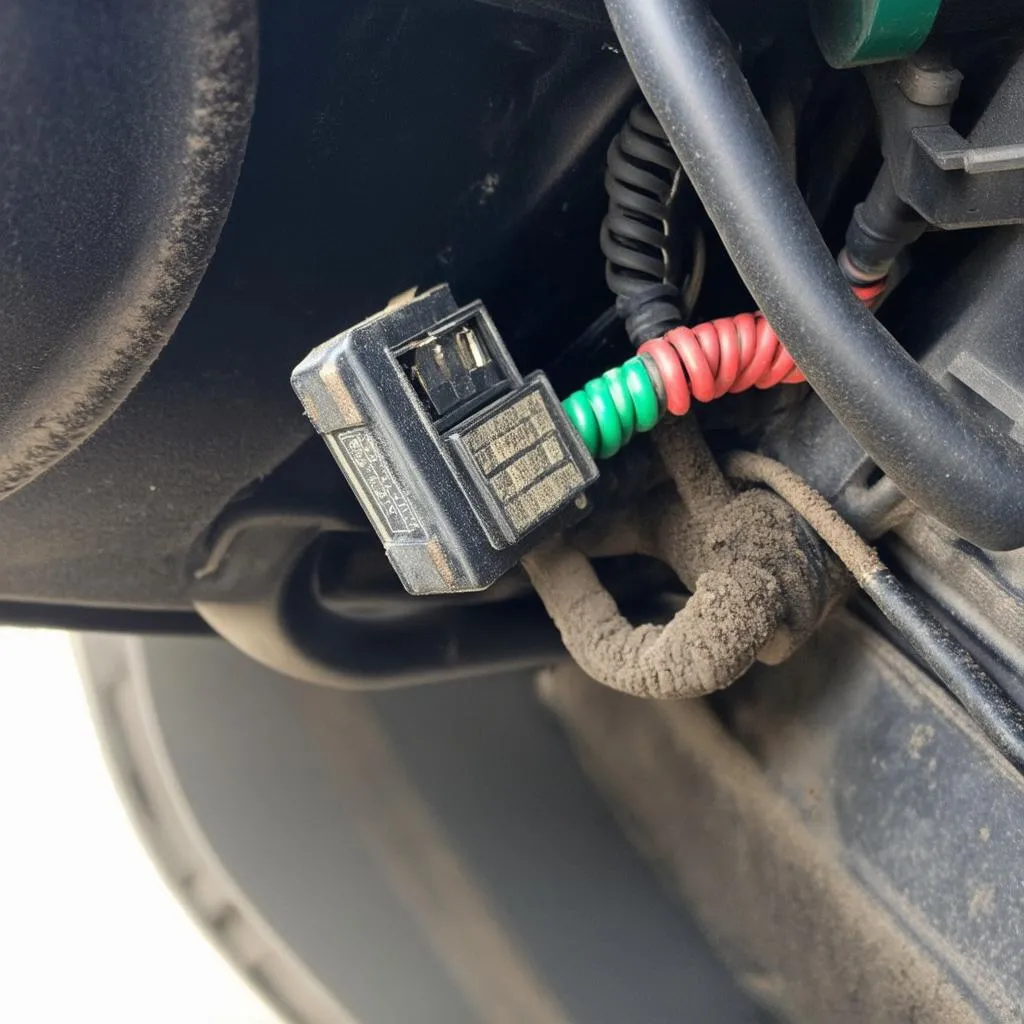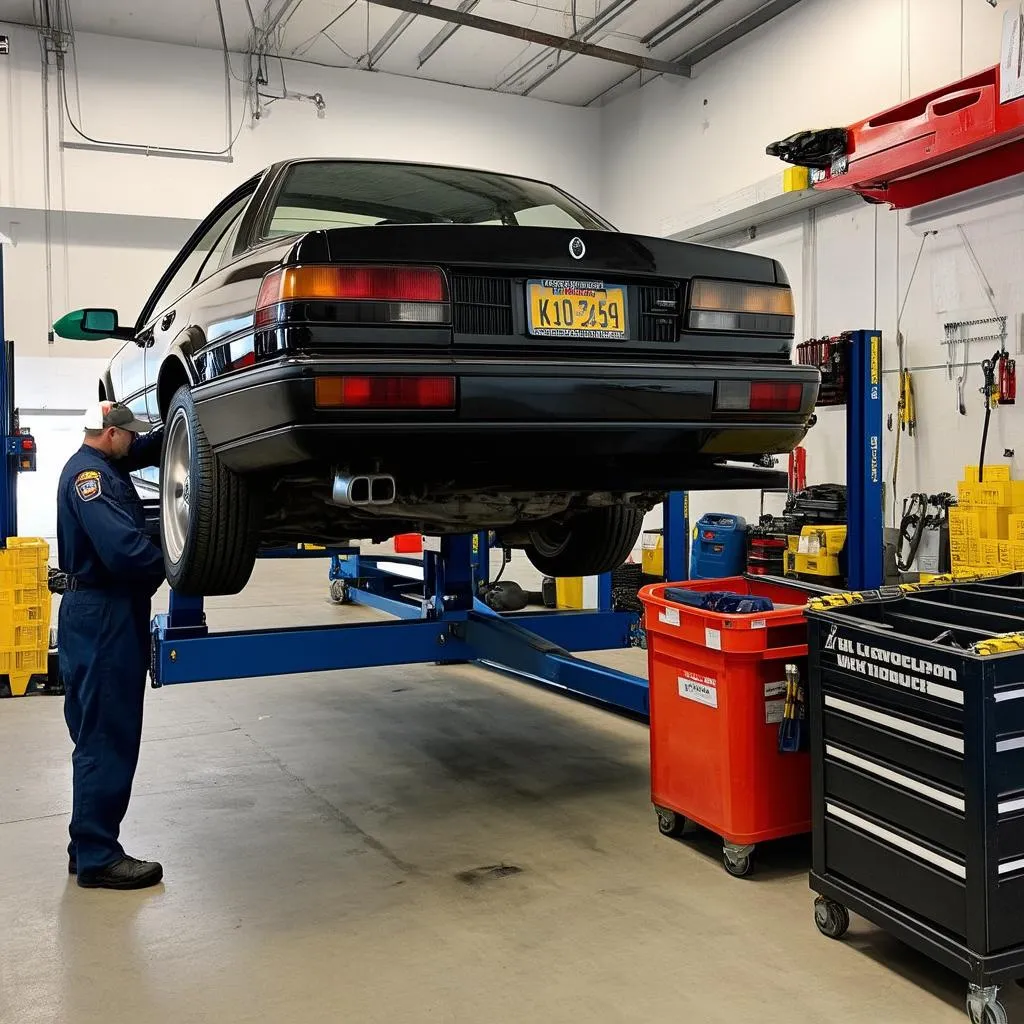So, your ABS light decided to throw a party on your dashboard, huh? Don’t panic – we’ve all been there! It can be frustrating when a warning light pops up, especially when you’re about to embark on a road trip from Chicago to Los Angeles. Before you envision your car careening out of control on Mulholland Drive, let’s demystify this “check engine light” of the braking world.
Decoding the ABS Light: What’s it Really Telling You?
Understanding what your car is trying to say can save you time, money, and a whole lot of worry.
A Mechanic’s Perspective:
“Many drivers see the ABS light and immediately assume the worst,” shares John Miller, a seasoned mechanic with over 20 years of experience at a Bosch Car Service Center in Berlin. “But it’s rarely a catastrophic failure. It’s your car’s way of saying, ‘Hey, something might be off with the system designed to help you stop safely.'”
The Engineering Behind the Light:
The ABS, or Anti-lock Braking System, is a crucial safety feature. It prevents your wheels from locking up during hard braking, allowing you to maintain steering control. When the light illuminates, it signals a potential issue within this system.
The Economic Angle:
Ignoring an ABS light can be costly. While a minor sensor malfunction might be a relatively inexpensive fix, prolonged neglect could lead to more significant (and expensive) damage to your braking system.
Can You Really Check Your ABS Light Without a Scan Tool?
Here’s the deal: while a scan tool offers the most accurate diagnosis of your ABS light, there are some preliminary checks you can perform at home.
Visual Inspection is Your Friend:
-
Check your brake fluid: Low brake fluid can sometimes trigger the ABS light. Locate the brake fluid reservoir (usually near the firewall on the driver’s side) and check the fluid level. If it’s low, consult your owner’s manual for the correct fluid type and top it up. However, be cautious if you notice a sudden drop in brake fluid level, as this could indicate a leak and requires immediate attention from a mechanic.
-
Inspect your ABS sensors and wires: Your car’s wheels house ABS sensors that monitor wheel speed. Take a look at each wheel and examine the sensors (usually located near the brake rotor) and their wiring. Look for any obvious damage, debris, or disconnections.
Think Back to Recent Events:
Did the ABS light come on after you drove through a deep puddle or had your car serviced? Water intrusion or an accidentally disconnected sensor during a tire rotation could be the culprit.
 ABS sensor and wiring
ABS sensor and wiring
When Home Remedies Aren’t Enough:
While these checks can provide some clues, it’s essential to remember that they don’t offer a definitive diagnosis. If the ABS light persists or you suspect a more serious issue, it’s time to bring in the professionals. A qualified mechanic with a scan tool can pinpoint the exact problem and get you back on the road safely.
Don’t Delay, Get it Checked:
Remember that saying, “An ounce of prevention is worth a pound of cure”? It rings especially true when it comes to your brakes. Ignoring warning signs can lead to more extensive (and expensive) repairs down the line.
FAQs About ABS Lights:
Here are some common questions car owners often have about their ABS light:
- My ABS light came on then went off, should I still be concerned?
- Can a bad battery cause the ABS light to come on?
- How much does it cost to fix an ABS light issue?
- Is it safe to drive with the ABS light on?
For detailed answers to these questions and more insights into ABS systems, check out our article “ABS Light Came On Then Went Off” or explore the helpful resources on our “Scan and Ship Tool” page.
Need Expert Help? We’re Just a Message Away!
Still feeling puzzled by your car’s cryptic messages? Don’t worry, we’re here to help! Our team of auto repair experts is available 24/7 to assist you with any questions or concerns you may have about your vehicle’s diagnostics. Contact us on Whatsapp at +84767531508, and let us help you get to the bottom of your car troubles.
Drive Safe, Drive Smart:
While we hope this guide has shed some light on the mysterious ABS warning, remember that your safety is paramount. Never hesitate to consult a qualified mechanic for a thorough inspection and diagnosis if you’re unsure about anything related to your car’s braking system. After all, when it comes to your safety and the well-being of others on the road, it’s always better to err on the side of caution.
 Car on lift in repair shop
Car on lift in repair shop
Want to learn more about how to use a scan tool to bleed your ABS brakes or understand what bi-directional control on a scan tool is? Explore our other informative articles for a deeper dive into the world of automotive diagnostics.


